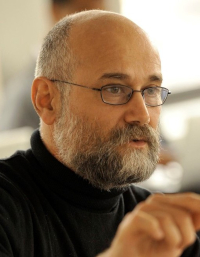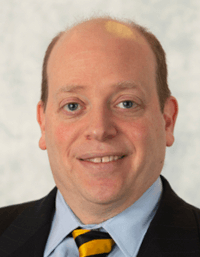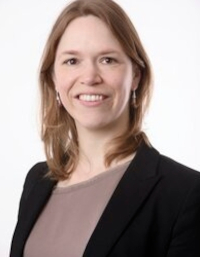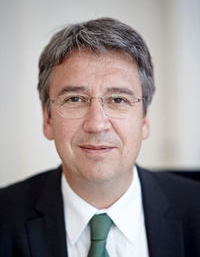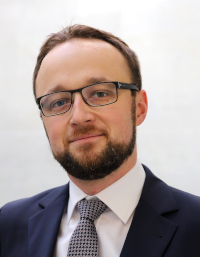Digital Economy and Inequality (part I)
Transatlantic Seminar: Consumer Law, Technology and Inequality
- Date: Feb 9, 2022
- Time: 04:00 PM (Local Time Germany)
- Location: online
Speakers:
Yochai Benkler (Harvard University)
Michael Kades (Washington Center for Equitable Growth)
Vanessa Mak (Leiden University)
Andreas Mundt (President of the German Federal Cartel Office)
Moderation: Mateusz Grochowski (Max Planck Institute for Comparative and International Private Law)
About the participants:
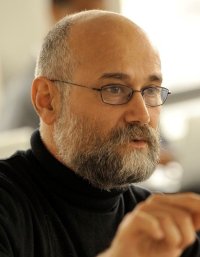
Yochai Benkler is the Berkman Professor of Entrepreneurial Legal Studies at Harvard Law School, and faculty co-director of the Berkman Klein Center for Internet and Society at Harvard University. Since the 1990s he has played a role in characterizing the role of information commons and decentralized collaboration to innovation, information production, and freedom in the networked economy and society. His books include The Wealth of Networks: How social production transforms markets and freedom (Yale University Press 2006), which won academic awards from the American Political Science Association, the American Sociological Association, and the McGannon award for social and ethical relevance in communications. In 2012 he received a lifetime achievement award from Oxford University in recognition of his contribution to the study and public understanding of the Internet and information goods. His work is socially engaged, winning him the Ford Foundation Visionaries Award in 2011, the Electronic Frontier Foundation’s Pioneer Award for 2007, and the Public Knowledge IP3 Award in 2006. It is also anchored in the realities of markets, cited as “perhaps the best work yet about the fast moving, enthusiast-driven Internet” by the Financial Times and named best business book about the future in 2006 by Strategy and Business. Benkler has advised governments and international organizations on innovation policy and telecommunications, and serves on the boards or advisory boards of several nonprofits engaged in working towards an open society. His work can be freely accessed at http://www.benkler.org.
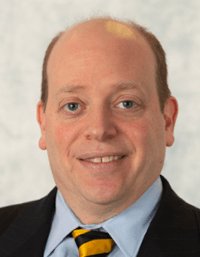
Michael Kades is the director for markets and competition policy at the Washington Center for Equitable Growth. His research focuses on competition and antitrust enforcement, with an emphasis on consumers, wages, equality, and innovation. Prior to joining Equitable Growth, Michael worked as antitrust counsel for Sen. Amy Klobuchar (D-MN), the ranking member on the Senate Judiciary Subcommittee on Antitrust, Competition Policy and Consumer Rights, where he led efforts to reform antitrust laws. Previously, he spent 20 years investigating and litigating some of the most significant antitrust actions as an attorney at the Federal Trade Commission. During his time at the FTC, he was an attorney advisor to Chairman Jon Leibowitz. He has testified before Congress and the Federal Trade Commission and has been cited by The New York Times, The Washington Post, and other media outlets on antitrust enforcement and competition policy matters. Kades is a graduate of Yale University and the University of Wisconsin Law School.
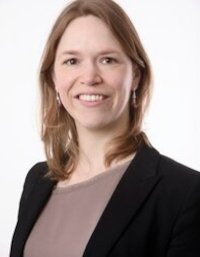
Vanessa Mak holds a chair in Civil law at Leiden University. From 2008 she was affiliated with Tilburg University, where she was appointed Professor of Dutch and European Contract Law in 2014. From 2017-2020 she was Vice-Dean for Research at Tilburg Law School. She had previously worked as a postdoc at the Max Planck Institut für ausländisches und internationales Privatrecht in Hamburg and as a lecturer at Oriel College, Oxford. Vanessa’s research focuses on lawmaking in European private law, particularly in the area of contract law. Specific focus areas are the regulation of the platform economy, issues concerning regulation with regard to data and technology, and financial services provided to consumers. Vanessa Mak regularly provides expert advice to national and European institutions. She is also a member of the editorial staff of the Tijdschrift voor Consumentenrecht en handelspraktijken (TvC) and the Journal of European Consumer and Market Law (EuCML). At Leiden University, she teaches in the bachelor and master programmes in law.
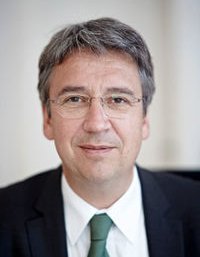
Andreas Mundt has been President of the Bundeskartellamt since 2009, member of the Bureau of the OECD Competition Committee since 2010 and the Steering Group Chair of the International Competition Network since 2013. After qualifying as a lawyer, Andreas Mundt entered the Federal Ministry of Economics in 1991. In 1993 he joined the staff of the Free Democratic Party in the German Parliament. In 2000 he joined the Bundeskartellamt as rapporteur and later acted as Head of the International Unit and Director of General Policy.
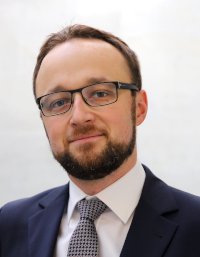
Mateusz Grochowski [moderation] obtained his Ph.D. cum laude at the Institute of Law Studies of the Polish Academy of Sciences, receiving the prize for the best Polish dissertation in private law. He holds a title of Master of Laws (LL.M.) from the Yale Law School. He is an Affiliated Fellow at the Information Society Project (Yale Law School) and was an Emile Noël Fellow at New York University School of Law. Prior to joining the Max Planck Institute, he was an Edmond J. Safra Fellow at the Buchmann Faculty of Law, Tel Aviv University and a Max Weber Fellow at the European University Institute. He has been also appointed as a Member of the Office of Studies and Analyses of the Supreme Court of Poland. He received several scholarships and awards, including the Fox International Fellowship (Yale) and a scholarship for outstanding legal researchers from the Foundation for Polish Science.
About the seminar series:

The Transatlantic Seminar on Consumer Law, Technology, and Inequality is a joint initiative of five partners: the Max Planck Institute for Comparative and International Private Law, the Yale Law School Center for the Study of Private Law, Jagiellonian University in Cracow, the Free University in Berlin, and the European University Institute in Florence. The seminar seeks to create a space for sharing knowledge, ideas, and experience across geographic and professional boundaries, with a special emphasis on bringing US and European scholars, policy-makers, and social activists together. Each session will combine speakers who rarely appear together but share interests at the intersections of law, economics, and society.
